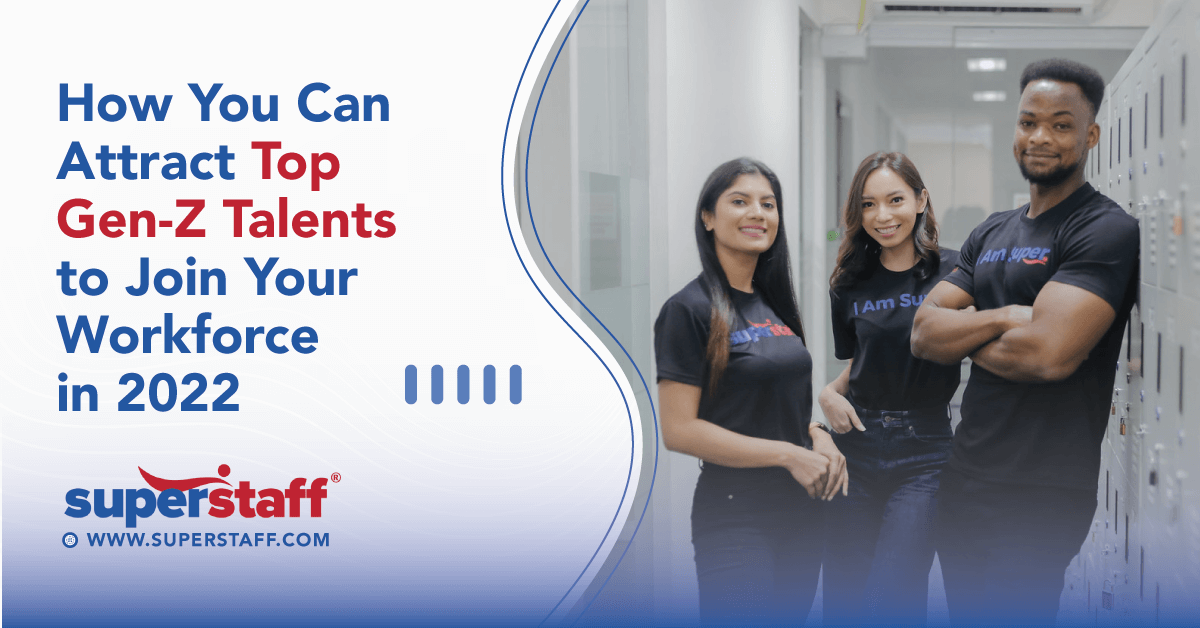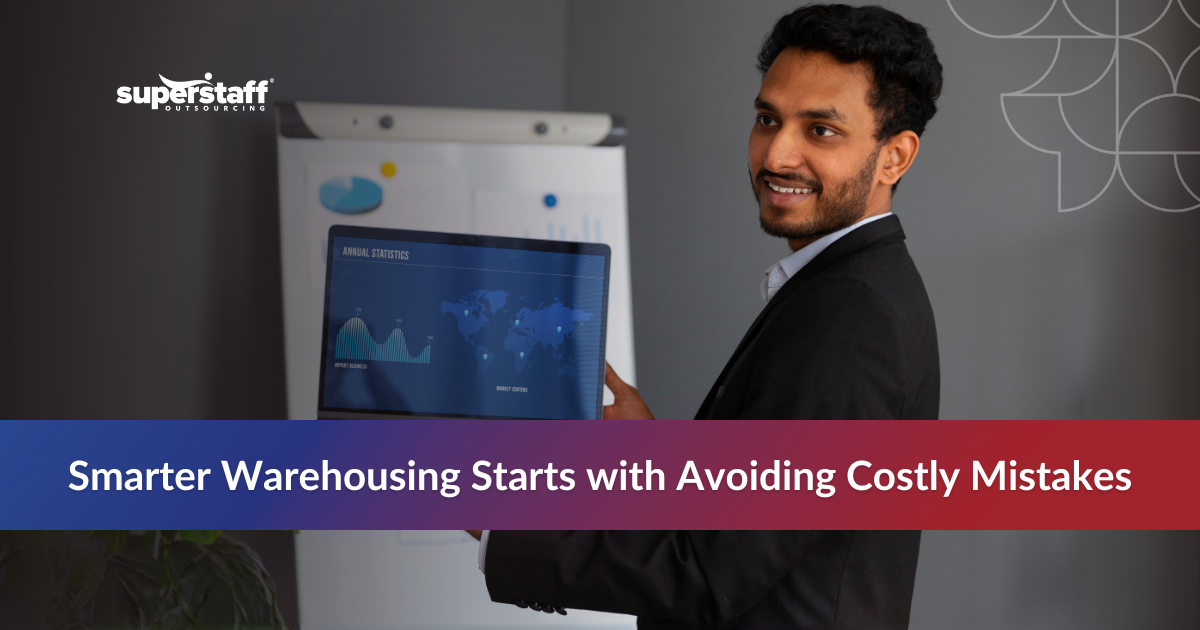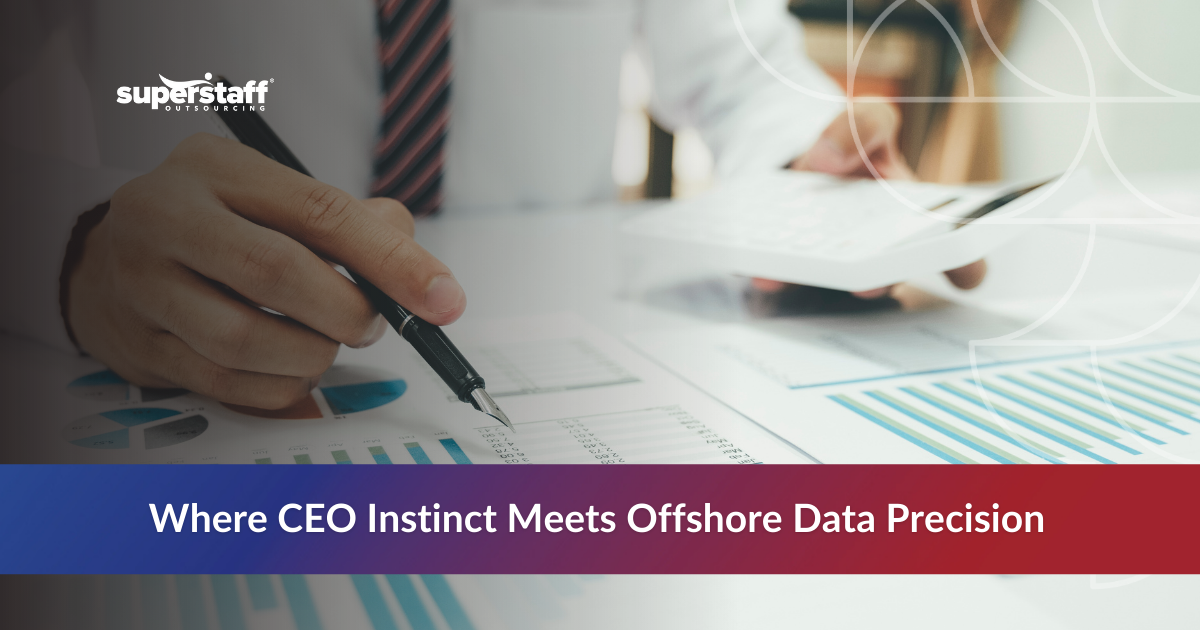
They are young yet pragmatic, independent yet collaborative, ambitious yet cautious. Amid the tight labor market, employers are on an all-out bidding war for the starkly unique and puzzling generation of workers: The Gen-Z.
Boomers have retired, and in a few years, millennials will, too. Projected to grow by 51 million in 2030, the Gen-Zs (also known as Zoomers) are about to drive another radical transformation in the workplace. Get to know the most coveted workforce demographic today and discover how you can usher them into your recruitment door.
Who Are the Gen-Zs?
- Gen-Zs are those born between 1997 and 2012.
- They are the most racially and ethnically diverse generation.
- Like millennials, Gen-Zs are highly adept at emerging social trends and issues.
- Zoomers are digital natives and have not known a world where smartphones don’t exist.
- Gen-Z is the most educated generation in the workforce today, with 1 in 2 having a university degree.
- By 2025, Zoomers will make up 27% of the global workforce.
6 Solid Strategies for Recruiting Gen-Z Workers Amid the Labor Shortage
#1: Stellar Incentives and Bonuses on Top of High Salaries
The current labor market favors workers across age groups, but young talents emerge as the biggest winners. As employers struggle to fill roles, Gen-Z workers enjoy wage hikes that even outpaced inflation.
Data from the Atlanta Federal Reserve Bank showed that the median hourly wages for workers between 16 and 24 in January were higher by 10.6% compared to the same period last year. The said increase is more than double the 4% overall gain for all workers and the highest over the past 25 years.
Aside from wage increases, the tough competition for Gen-Z and millennial workers prompted businesses to beef up their offers with other incentives. According to the U.S. Bureau of Labor Statistics, nearly a quarter of U.S. private-sector businesses have paid wage premiums or bonuses.
If you want to attract top Gen-Z talents into joining your organization, you need to be creative in providing perks and opportunities that are hard to resist, such as:
- College tuition assistance
- Signing bonuses
- Roles with huge promotion potential
#2: Attractive Apprenticeship Program
Another thing that makes Gen-Z workers highly sought after by employers is their ultra-competitive nature. Gen-Zs want to take control of their career and seek professional advancements right on the get-go. This nature can be attributed to various factors.
One is the economic condition they grew up in. Raised during the recession period, Gen-Zs witnessed how their parents struggle with an unfavorable labor climate—one that’s opposite of what they have today—and fuel their aspiration to climb the ladder of success.
Another reason behind the competitiveness of Gen-Zs in the workplace is that most members of this generation received a high-quality education. With 1 in 2 Gen-Zs holding a university degree, Gen-Zs know that the playing field teemed with equally qualified competitors.
Recently, Gen-Zs have witnessed how the pandemic drastically transformed the once-promising economy into a somewhat volatile one. Although armed with all the future-ready skills, many Gen-Z workers fear that they are about to inherit an unstable economic landscape.
To attract this generation to your company, you need to cultivate a work environment that encourages them to succeed intentionally. Gen-Zs want to feel valued for the long-term potential they bring to the table. Therefore, the key to engaging them involves robust initiatives that show clear evidence of the following:
- Mentorship opportunities
- Career progression
- Continuous upskilling and development
- Leadership training and skill transfer
- Interactive learning
Read More: Top 7 Workplace Trends in 2022 That Decision Makers Should Know
#3: A Culture That Puts a High Value on Face-to-Face Interaction
Here’s a surprising twist about Gen-Z workers: This generation is surrounded by technology all their lives. They are also independent and competitive workers who generally prefer individual jobs over group work. Yet, Gen-Zs crave authentic real-life connections. They want to cultivate relationships that are unbounded by digital screens.
A study by Concordia St. Paul revealed that:
- 40% of Gen-Z workers want to have face-to-face coaching with their superiors—they’ll feel unrest when they don’t.
- 37% believe that technology is diminishing their social and interpersonal skills.
- 60% are worried that social media are too public.
So, as an employer, how do you reconcile the contradicting view and relationship Gen-Z workers have with technology?
One way is to adopt a work environment or arrangement that meets their “phygital” or physical and digital needs. For instance, you may opt for a hybrid work arrangement that follows digital-first workflows while at the same time maintaining a physical office that’s intentionally designed to facilitate engagement, networking, collaboration, and even socialization.
Another reason why the Gen-Zs put a premium on building offline relationships is their moral views. Although Gen-Zs spend about 10 hours a day online, “techlash” or the negative perception of the tech industry and its practices appear to be higher in the demographics.
While working for tech giants, such as Google and YouTube, were once the dream of most millennials, Gen-Zs see accepting a lucrative offer from the Big Tech as selling out. The biggest companies in Silicon Valley struggle to recruit Gen-Zs even from campuses that produce top tech talents. Facebook even suffered a 40% decrease in acceptance rate for engineering positions in 2019.
To address this concern, it is crucial for companies—no matter the industry—to display high ethical standards, particularly in dealing with digital data and user privacy. If you want to engage Gen-Zs and millennials, you need to show that your company is a force for good, which leads us to our next point.

#4: Commitment to a Broader Set of Societal Challenges
Surrounded by digital technology all their lives, Gen-Zs have virtually unlimited access to news, ideas, cultures, values, and other factors that contribute to their increased social awareness. This generation is exposed to everything happening in and around them—the good, the ugly, and everything in between.
Dubbed the “woke generation,” Gen-Zs are not afraid to call out or cancel organizations that display, favor, or promote injustices and inequality of any form. They also make a firm stand on various social and environmental issues. Gen-Zs know the power of their collective voice and use it to demand greater accountability from corporations, whether as potential employers or brands to patronize.
To attract Gen-Z talents, you need to commit to making a positive difference in society—and live out that commitment. This generation will evaluate not only your stand in sustainability, climate change, or hunger issues but, more importantly, how you use your influence and resources to act on them. In short, they care about actions better than words.
As Gen-Zs are also the most racially and ethnically diverse generation, diversity, equity, and inclusion initiatives in the workplace are significant to this generation. About 69% of Gen-Z job seekers would likely join a company with recruitment materials emphasizing a racially and ethnically diverse workplace.
Gen-Z’s strong passion for DE&I is rooted in some of their personal experiences with biases and other forms of discrimination. One study found that 67% of Gen-Z workers have witnessed and 44% have personally experienced racial, ethnic, sexual orientation, or gender identity discrimination or bias in the workplace.
Therefore, if you want to attract Gen-Z workers, you have to be ready to meet their expectations for higher moral and ethical standards.
#5: Work Environment and Culture That Support Mental Health
Similarly, with all members of the workforce, millennials and Gen-Zs value mental wellness and other health benefits. These generations of workers take the issue of mental health seriously—and expect employers to do the same. Take a look at the following statistics:
- 75% of Zoomers have quit their jobs for mental health reasons
- 77% said being able to discuss mental health openly in the workplace is crucial to them.
- 91% believe that employers must have a mental health policy in place.
And just as how Gen-Zs want corporations to walk the talk when it comes to social and environmental issues, they also want employers to take tangible actions to address burnout, stress, and other workplace mental health concerns at their roots. In short, they want a workplace culture that, by design, organically promotes employees’ overall welfare. As an employer, this will require you to take an honest look at—and even radically transform—your workplace practices and business model.
For example, if your employees are burdened with too much workload due to labor shortage, squeezing in a mental health webinar in their already-jampacked work week will likely backfire. Instead of band-aid solutions, you may opt to hire a third-party provider to take some load off your workers’ shoulders. Or if they are stressed with the long commute, you may adopt a hybrid or fully remote work arrangement.
Read More: Find Out the Top 7 Sectors Suffering Labor Shortage Due to ‘The Great Resignation’
#6: Practical Benefits That Promotes Long-Term Security
Although their older predecessors often paint Gen-Zs as unmotivated, self-entitled, and impractical, data speak otherwise. Compared to their millennial counterparts, Gen-Z workers are more after practical benefits that afford them financial stability and security—and they are willing to work hard for these. Various studies have found that:
- 70% of Gen-Z workers consider salary as their number one motivator.
- 67% are willing to relocate for a promising job opportunity.
- 58% are willing to work nights and weekends for a higher salary.
- 54% describe pay as a top priority for choosing their first job.
Again, growing up amid global financial instability has contributed to Gen-Zs pragmatism. Having witnessed how their millennial counterparts struggle with college loans and debts, Zoomers seek benefits that offer long-term financial freedom, such as:
- Retirement plans
- Health insurance
- Tuition reimbursements
- Stock options
Gain Access to a Global Population of Zoomers With SuperStaff
SuperStaff brings our partners closer to Gen-Z talents all over the world. We are a BPO that offers a comprehensive range of outsourcing, offshoring, nearshoring solutions to businesses across North America, Europe, and the Asia-Pacific.
Aside from our locations in Pennsylvania, New Jersey, and Texas, we have offices in vibrant business districts in the Philippines (Makati, Clark, and Angeles) and Colombia. Our strategic presence in these two popular outsourcing destinations guarantees our partners access to a large population of job-ready Gen-Z talents.
To learn more about our services, schedule a consultation with us today.






